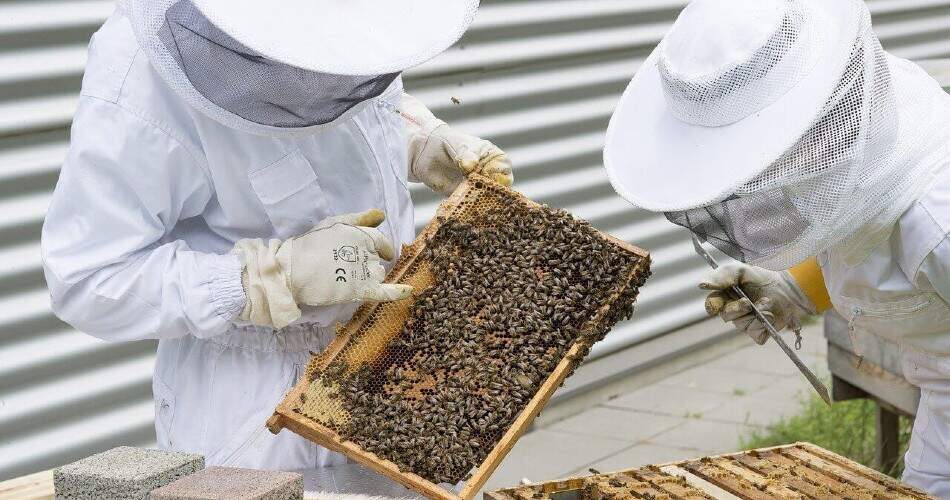Estimated reading time: 2 minutes
Apart from the soil, water, and sun, more is needed for a green world. Bees also play a crucial part in the environment. Bees are of historical importance, contribute to human and ecosystems health.
In recent decades, bee populations have been the focus of declining colonies around the globe. Despite their role in pollinating plants responsible for the maintenance of humans and especially all other organisms on this planet, bee populations have declined steadily due to widespread ignorance of their existence.
The United Nations has chosen May 20 as World Bee Day to draw attention to these pollinators and their role in improving life and ecosystems around the globe. To conserve these ecologically significant pollinators is necessary to appreciate their existence and understand the different components: habitats, behaviors, species diversity, shapes, colors, and sizes.
There are about 20,000 known bee species worldwide, and over 4,000 come from the United States. Humans manage only a few of these, and most species are wild.
Bees are essential for human and planetary health. In addition, honey and other products have medicinal properties, and the role of bees as pollinators makes them vital for the food supply.
In addition to being pollinators, bees also provide honey. Honey, of course, is the most popular and economically relevant bee product. Honey is a food made by bees for bees, but it is also beneficial for humans. The substance is a common sweetener with many medicinal properties and many health benefits.
Honey includes antioxidants, which can preserve the body from inflammation. A study found that the antioxidants in buckwheat honey were detectable in the blood plasma, showing that honey consumption could increase the antioxidant activity in the body.
In addition to honey, bees produce four other products: beeswax, royal jelly, propolis, and venom, all of which are collected and used by humans for various nutritional and medicinal purposes.
After honey, beeswax is the second most crucial bee product in economic terms. It currently has health benefits and features in several skincare products. In addition, the pharmaceutical industry uses it in ointments.
Royal jelly is a gelatinous substance sold as a dietary supplement to treat many physical ailments and chronic diseases.
Propolis is a compound generated by bees that is supposed to fight infections, heal wounds, and more.
In a 2020 study, scientists found evidence that melittin, a component of bee venom, could kill cancer cells.
Bees are excellent pollinators because they spend most of their lives collecting pollen, a protein source. As pollinators, bees play a role in every aspect of the ecosystem. They support the growth of trees, flowers, and other plants, which serve as food and shelter for creatures large and small.
If you want to find out about conventional cotton, check out our article on this topic: Why is conventional cotton bad for the environment?
[Photo from Pixabay]
